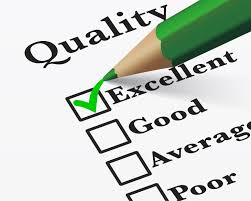QUALITY PRINCIPLES OF PROLANT-CAP PROJECT
Vocational Education & Training (VET) institutions in Europe are using different quality management (QM) systems and methods. The most commonly used are ISO standards and the TQM (Total Quality Management) approach, as well as the EFQM Excellence model or the CAF model. ISO helps to bring processes in line and to concentrate on various issues in detail, while TQM models give a generic overview of all organisational areas. The EFQM model is a base, while the CAF model is being applied particularly in state institutions and has been simplified.
Biedriba Eurofortis‘s experience in the quality management field helps others to «start their way» and to «keep on track» with QM. To understand where an organization is at in their development
stage, and where they would like to move to in the future, the most appropriate way is to use one of the TQM approaches. In Europe, TQM is represented by the EFQM Excellence model
which helps an organization to become excellent—to offer its customers and society more.
One of the fundamental pillars of the EFQM approach is to carry out a regular self-assessment. This can be based on 9 EFQM Excellence Model criteria (Leadership, Strategy, People, Partnerships & Resources, Processes, Products & Services, People results, Customer results, Society results, Business results. Self-assessment itself shouldn‘t last longer than 2 months, because as the organisation development is a never-ending process, changes can take place during the self-assessment process. The basis for the EFQM Excellence model approach, is PDCA cycle (Plan-Do-Check-Act). First, PLAN what to do, then DO it, afterwards CHECK how successful and finally ACT to change their approach and plan if needed. This system is suitable for all organisations and specific projects, it doesn‘t matter if the organisation is small or large. We also use the PDCA cycle for quality management in our project, to measure satisfaction indicators and follow progress
and development needs.
To gather all the needed information for an organisation/project development, it‘s not enough to just organise the internal self-assessment but also to receive feedback and opinions from various stakeholders – employees and customers etc.
Using this experience, we believe that a project partnership is just a different type of organisation and therefore the Quality plan and the internal/external evaluation questionnaires of the PROLANT CAP project are based on the EFQM framework and its methodology. In this way we can improve the managerial potential of the project and create not just a high-quality product
but develop a sustainable and strong partnership built on excellence principles.
Vanda Novoksonova,
Member of the board of Biedriba Eurofortis, EFQM Certified Trainer


